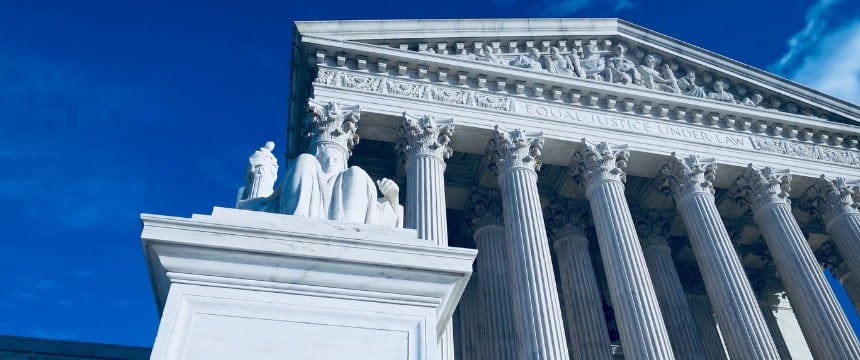Religious Accommodation for Employees: The Potential Impact and Likely (Unintended) Consequences of SCOTUS’ Groff v. DeJoy Decision

We recently wrote about Groff v. DeJoy, the Supreme Court decision reinterpreting the meaning of “undue hardship” for Title VII religious accommodations to actually mean “undue hardship,” as opposed to minimal costs. In this follow-up post, we address the potential impact and trade-offs of the Groff decision on employers and the protection of religious rights in the workplace.
The Nominal Prohibition of the Pre-Groff De Minimus Standard
Before Groff, the test for undue hardship in the religious accommodations context was the most employer-friendly standard in Title VII discrimination law. Employers could deny requested religious accommodations if doing so would impose “more than a de minimis cost.” As a result, for some 50 years, religious discrimination has traditionally been viewed as the proverbial unwanted stepchild of Title VII, with pro-employer “undue hardship” exceptions to accommodation requirements that did not require much, either in terms of hardship or of being undue. In practice, the standard allowed for the denial of even minor accommodations, such as the relaxation of dress codes and coverage for occasional absences. Accordingly, when faced with a religious accommodation request, employers successfully focused on the inconvenience of the matter, with the result that employees had to rely more upon management’s goodwill than on HR being a good cop.
Groff Puts Religious Discrimination on Par with the Rest of Title VII
Under Groff v. DeJoy, the prohibition against religious discrimination — and the obligation of employers to accommodate the religious practices of employees — has been brought up to par with other Title VII protections. Now, an employer must show that the costs of an accommodation “rise to an excessive or unjustifiable level” to establish undue hardship. Undue hardship only exists if the burden is substantial in the overall context and conduct of an employer’s business. In other words, an employer must show that the burden of granting an accommodation would result in substantial increased costs in relation to the conduct of its particular business.
The Impact, Unanswered Questions, and Likely Unintended Consequences of Groff
Fact-Intensive Employer Decisions
In applying this new standard, employers and courts will need to consider all relevant factors, including the particular accommodations at issue and their practical impact in light of the nature, size, and operating cost of an employer. Because this creates a highly fact-sensitive inquiry, it will be more difficult for employers to deny religious accommodations on the ground of undue hardship — and to dispose of religious accommodations claims in the early stages of litigation.
Unanswered Questions: Proceed with Caution
The new Groff standard is only general guidance. The Court acknowledged as much, leaving it to the lower courts to flesh out the details of what actual undue hardship means on a case-by-case basis.
For example, the new tests sounds similar to the test for undue hardship under the Americans with Disabilities Act (ADA), but the Court specifically rejected Groff’s request to “instruct lower courts to ‘draw upon decades of ADA case law.’ ” In fact, the Court stated that the new standard “may prompt little, if any, change in the [EEOC’s] guidance explaining why no undue hardship is imposed by temporary costs, voluntary shift swapping, occasional shift swapping or administrative costs.” That suggests that the EEOC’s right-turn on religious discrimination in 2020 — giving more normative examples of what would not be undue hardship — was more prescient than political.
Still, it remains unclear exactly how far employers must go to accommodate employee religious practices and what degree of costs and disruption will be enough to show undue hardship. For a time, we may have to contend with somewhat different standards across jurisdictions as these questions are addressed in the courts. That, in turn, would suggest that employers proceed with caution in response to religious accommodation requests, erring on the side of careful risk management to avoid uncertainty of potential employee claims. In other words, employers should treat such requests more akin to how they would traditionally treat other protected employee rights.
Untended Consequence: Pressure on the “Sincerely Held Religious Belief” Requirement
If you were to canvass religious discrimination case law around the country, there is one pattern that stands out (other than the now-rejected de minimus rule): courts have avoided (like Covid exposure in 2020) the question of whether the employee’s accommodation request is based on a “sincerely held religious belief,” as required by law. There are at least two practical reasons for this; first, from a legal perspective, religious belief is (or often can be) incredibly subjective, making the legal question of sincerity akin to discerning how many angels can dance on the head of a pin. Second, with a de minimus standard in place, no court had to give much thought to the sincerity of the employee’s belief, as anyway the accommodations in issue had to be minimal to be protected.
Now, with more pressure on employers to accommodate a greater and more inconvenient range of religious practices, two other consequences can be expected: first, there will be a greater demand by more employees that their religious practices be accommodated. And potentially (and we would venture very likely) second, there will be a greater demand by employers upon courts and employees to show that such beliefs are sincerely held.
Or, as the late great Kurt Vonnegut liked to say, “Keep your hat on. We may end up miles from here.”
Special thanks to Emily Juneau, a 2023 summer associate, for her contributions to this article.
